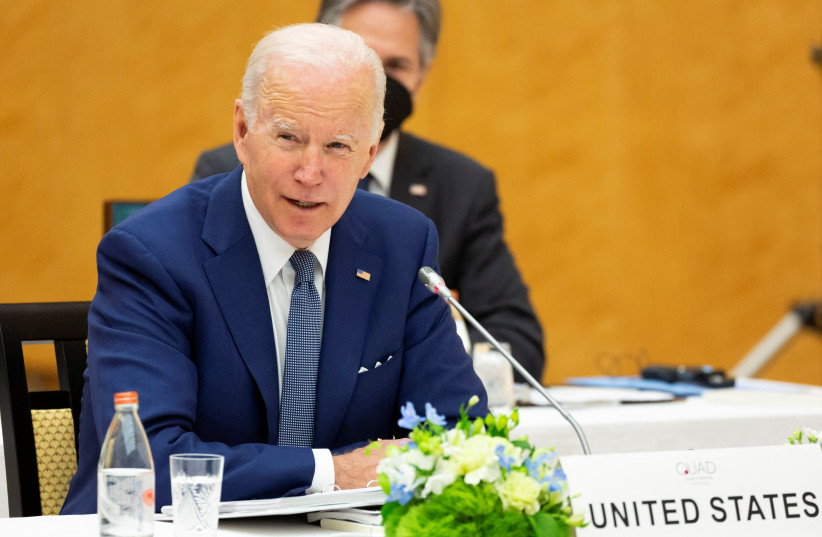WASHINGTON – On Monday night, shortly after Prime Minister Naftali Bennett and Foreign Minister Yair Lapid announced that new elections will be held in October – the fifth elections in three years – one question that immediately came to mind was about the scheduled visit of US President Joe Biden, who is set to tour the region from July 13-16.
Biden’s trip was already postponed once, from June to July, and now his arrival will most likely coincide with yet another election campaign. “Israel is a strategic partner and fellow democracy,” a National Security Council spokesperson said.
“The impending Israeli election will have little impact on the substance of Biden’s visit.”
Daniel Shapiro, distinguished fellow, Atlantic Council and former US Ambassador to Israel
“We have a strategic relationship with Israel that goes beyond any one government,” said the spokesperson. “The President looks forward to the visit next month.”
However, it is still yet to be seen what Biden can achieve in his visit, given that he will meet a caretaker Prime Minister with no majority in the Knesset. How effective could such a visit be?

Lucy Kurtzer-Ellenbogen is the director of the Israeli-Palestinian conflict program at the US Institute of Peace. She said the president has to calibrate a few goals and pressing domestic and foreign policy interests for this trip, “and postponement for a second time is unlikely to be in the cards.”
“Arguably, Saudi Arabia and the GCC [Gulf Cooperation Council] convening is the centerpiece of the trip given strategic interests at this moment,” she said. “With gas prices soaring in the United States due to the ongoing Russian offensive on Ukraine, the administration would hope that beyond foreign policy interests, such a reassuring visit could pave the way toward Saudi Arabia adjusting its oil supply, providing some relief for Americans at the pump.
“However, heading to the Middle East for the first time in his presidency, skipping Israel would not be an option for Biden given the significance and closeness of the relationship between the two countries, and Biden’s own longstanding commitment to the US-Israel alliance,” said Kurtzer-Ellenbogen.
Daniel Shapiro, distinguished fellow at the Atlantic Council and former US ambassador to Israel, said, “The impending Israeli election will have little impact on the substance of Biden’s visit. The agenda is the same agenda. He’ll still focus on promoting Israel’s integration in the region, building on the Abraham Accords; US-Israel security cooperation, linked to a broader regional coalition; improving the atmosphere with the Palestinians; and preparing for the next phase of dealing with Iran, with or without a nuclear deal.”
All of these priorities have long-term strategic significance beyond the term of any particular government, Shapiro said. “He should pursue them regardless of who the prime minister is, while giving all due deference to Israel’s democratic process. There is no reason to postpone the trip.”
Jonathan Schanzer, senior vice president at the Foundation for Defense of Democracies, said there is “always benefit for an American president to visit Israel.”
“The relationship is broad, deep, spanning security, diplomacy, technology and trade,” he said. “The question is whether now is the time for major summits or other significant diplomatic maneuvers. Such things are not usually done with caretaker governments to avoid influencing politics as Israelis prepare to go to the polls.
“History dictates that Biden may need to forestall major announcements until after October 25,” Schanzer added.
Natan Sachs, director of the Center for Middle East Policy at the Brookings Institute, said that Biden’s trip primarily involves issues that are in consensus among most parties in Israel, “and so his agenda won’t be hurt much by the political situation there.”
“While he will try to improve US-Palestinian relations, he’s not trying to revive the peace process and not likely to pressure Israel to make major moves,” said Sachs. “The regional architecture piece of the trip, which is the major one, doesn’t depend on the identity of the prime minister. Netanyahu, Bennett and Lapid all agree on the need to deepen regional cooperation to counter Iran, and all would gladly welcome any steps to improve relations with Saudi Arabia.”
